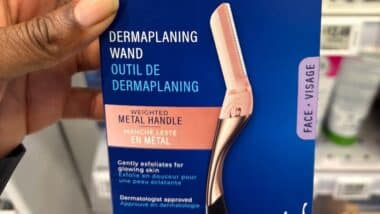How car dealerships may violate the TCPA by sending unsolicited text messages

Did you send an opt-out text to a car dealership but keep receiving unwanted messages? You may be eligible to join an automotive telemarketing class action lawsuit. Fill out the form on this page to see if you qualify and take the first step toward potential compensation.
Consumers across the country have taken action against car dealerships for allegedly violating federal telemarketing laws, including the Telephone Consumer Protection Act (TCPA). These dealerships have faced lawsuits for sending spam text messages without permission or continuing to send them after customers opted out of future communications.
If you have received unwanted car dealership text messages or a dealership has ignored your opt-out request, you may be eligible to join a class action lawsuit.
Do you qualify?
If you received repeated or unwanted text messages from a car dealership, you may qualify to join an automotive telemarketing class action lawsuit investigation.
Fill out the form on this page to check your eligibility.
Fill out the form on this page for more information.
The law firms responsible for the content of this page are: Butsch Roberts & Associates LLC; Clayton, MO; 314-863-5700; butschroberts.com and LegaFi Law LLC (an Arizona law firm), 888-4-LegaFi, www.legafi.com.
What is the TCPA, and how does it protect consumers?
The Telephone Consumer Protection Act is a federal law that protects consumers from unwanted telemarketing calls and text messages.
In 2012, the Federal Communications Commission (FCC) strengthened the TCPA by requiring businesses to obtain express written consent before sending promotional texts. Companies are also required to provide a clear opt-out option, such as allowing consumers to reply “STOP” to end future messages.
If a company fails to obtain written consent, does not honor opt-out requests or disregards the National Do Not Call Registry, it may be subject to statutory penalties of up to $1,500 per message.
Are car dealership spam texts illegal?
Car dealerships may be violating federal telemarketing laws — including the TCPA — if they send text messages without your permission or continue texting after you ask them to stop. Dealerships that ignore these rules can face legal claims and may be required to pay statutory compensation to affected consumers.
If you have received repeated or unsolicited car dealership text spam, you may be eligible to pursue a car dealership lawsuit.
Past car dealership telemarketing lawsuits and settlements
Over the past several years, consumers have filed lawsuits against car dealerships for sending potentially illegal text messages. Many of these cases have resulted in significant settlements:
- 2024 – JK Buick: Reached a $130,000 settlement to resolve claims over unwanted dealership texts.
- 2022 – Nissan: Paid $2.2 million to settle allegations that it sent illegal text messages about auto financing accounts.
- 2020 – Mercedes-Benz of Los Angeles: Sued in a class action for sending repeated spam texts advertising services, even after consumers asked them to stop.
- 2020 – Oklahoma dealerships: Agreed to an $850,000 settlement after consumers claimed they received illegal promotional texts.
- 2020 – Two joint dealerships: Faced a car dealership lawsuit for allegedly bombarding consumers with spam texts and calls, leading to added phone charges and inconvenience.
- 2019 – Florida Ford dealership: Agreed to pay $4.8 million to resolve claims it harassed consumers with repeated text messages and calls.
These cases show that dealerships can — and have — been held accountable for violating telemarketing laws. While settlement amounts vary, multiple consumers have been able to receive compensation for the annoyance, disruption and financial harm caused by car dealership text spam.
Join a lawsuit against car dealership spam texts
Car dealerships across the country rely on text messages to promote their business and stay in contact with their customers — but that does not mean they can ignore telemarketing laws, such as the Telephone Consumer Protection Act.
If you received unwanted car dealership text spam, you may be eligible to take legal action. Consumers who join a class action lawsuit against car dealerships may be able to receive compensation.
To take the first step, submit your information to see if you qualify.
Fill out the form on this page to see if you qualify for a free case evaluation.
See If You Qualify
Join a car dealership telemarketing class action lawsuit investigation
Filling out this form is quick and easy. It only takes a few minutes to see if you qualify.
"*" indicates required fields
After you fill out the form, an attorney(s) or their agent(s) may contact you to discuss your legal rights.
ATTORNEY ADVERTISING
The choice of a lawyer is an important decision and should not be based solely on advertisements.
PAID ATTORNEY ADVERTISEMENT: THIS WEB PAGE IS AN ADVERTISEMENT AND THE PARTICIPATING ATTORNEY(S) ARE INCLUDED BECAUSE THEY PAY AN ADVERTISING FEE. Top Class Actions is not a law firm, lawyer referral service, or prepaid legal services plan. We do not endorse or recommend any third-party claims processing company, lawyer, or law firm who participates in the network. We do not make any representation, and have not made any judgment, as to the qualifications, expertise, or credentials of any participating lawyer or processing group. No representation is made that the quality of the legal services or claims processing to be performed is greater than the quality of legal services or claims processing performed by other lawyers or claims processing group. The information contained herein is not legal advice. Any information you submit to Top Class Actions does not create an attorney-client relationship and may not be protected by attorney-client privilege because Top Class Actions is not a law firm. Instead, your information will be forwarded to an attorney(s) or their agent(s) or a claims processing firm for the purpose of a confidential review and potential representation if you qualify. You will only be contacted by an attorney(s) or their agent(s) in response to your inquiry if your initial information appears to qualify you for representation. If you are not contacted by an attorney(s) or their agent(s) within one week, you should consult another firm since all legal claims are subject to filing deadlines. All photos on this website are stock art and do not depict clients.












